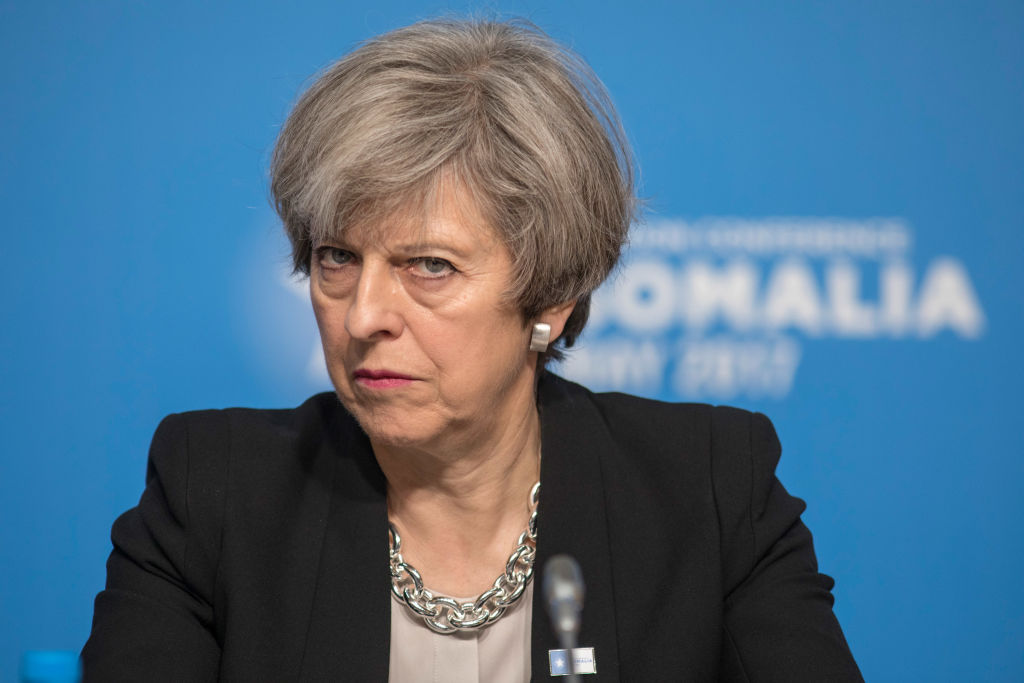In any deal, says the Sun, ‘no party should agree to the rules being set by the other side’. So the Prime Minister is ‘reassuringly spot on’ to insist we cut ‘direct ties with the European Court of Justice’. Whatever some might say, ‘make no mistake..’ the ECJ is no independent institution’, argues the paper – and instead, the court has been the ‘hothouse’ for the ‘ever-growing superstate’ of the European Union. Theresa May’s decision to turn Britain away from the court should be welcomed; and the terms the government put forward in its position paper, which it published yesterday, ‘strikes a decent balance’. Now, we can be grateful that ‘any barmy new laws’ thought up by ‘our continental cousins’ won’t apply to us. The PM has said before that she won’t be afraid to walk away from Brexit talks if things break down. Insisting that Britain leaves behind the ECJ is one point on which she must ‘be prepared’ to do so, concludes the Sun.
Meanwhile, the FT is less impressed by the government’s position on the ECJ. One of the options touted by ministers is to rely on a ‘dispute settlement system’. Yet because panels controlling such a scheme derive their authority from ‘treaty law rather than being rooted in the law of the countries involved’, their power of redress would be much weaker. What’s more, under this plan ‘cases can only be brought by governments, rather than individuals or companies’ – and, the FT argues, ‘enforcement’ is also ‘relatively weak’. Another option is a ‘hybrid system’, whereby Britain relies on a ‘European Free Trade Association court’. This is ‘constructive’, says the FT. But the sticking point is whether the EU will agree to it. After all, ‘a court that starts diverging substantially from the ECJ in rulings on an economy as large as the UK will cause a rethink’. Yesterday paper, concludes the FT, does play a useful role in ‘softening-up’ some of the ‘less extreme Brexiters’. But the government needs to speed up its thinking. The current ‘conversations’ on Brexit ‘are moving far too slowly’ – and time is not on the government’s side.
Some U-turns are a source of embarrassment for the politician conducting them, says the Guardian. Not so Theresa May’s about-turn on ‘Britain’s relationship with the European court of justice after Brexit’, which the paper says should be warmly welcomed. The PM has said before that ‘the authority of EU law in Britain will end’. Yesterday’s paper makes it clear this isn’t the case any more. Instead, the government has offered up ‘a range of ways’ the ECJ can continue to have influence in British law after Brexit. ‘The paper’s claim that leaving the EU will end the “direct jurisdiction” of the ECJ within the UK is a fig leaf to conceal the government’s larger retreat’, says the Guardian. This is a good thing, argues the paper. After all, it was ‘utterly foolish’ for Theresa May to refer to the ECJ’s authority as a ‘red line’. Finally, the government, it would appear, is moving in a sensible direction. And while the tone of ministers is still ‘too cautious’ on Brexit, ‘the momentum is towards compromise with the EU and away from unilateralism’, says the paper. Theresa May ‘is for turning’, concludes the paper – and we should all be grateful.







Comments